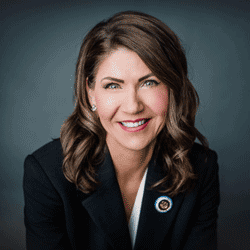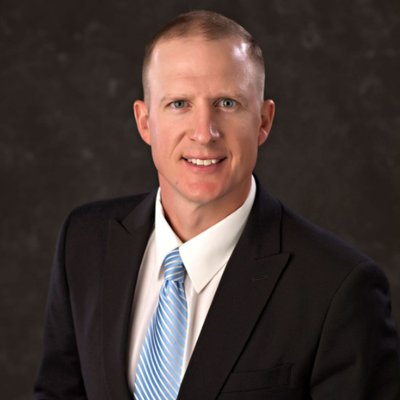Are business owners in danger of being pushed to the side as some politicians attempt to appeal to populist elements on COVID vaccination?
In 1946, a state constitutional amendment was passed to prohibit a person’s right to work from being “denied or abridged on account of membership or nonmembership in any labor union, or labor organization.” Since then, state laws have continued to promote a laissez faire stance towards business, including provisions that labor unions cannot demand that an employer hire certain employees and not others.
Yet many years later in 2021, a movement has begun in the South Dakota House of Representatives to appeal to a populist brand of politics that considers businesses and their owners as subordinate to the demands of workers. Representing a continued wedge being driven by some conservative elements of the Republican Party who at times view business owners derisively as ‘elitist,’ and ‘chamber of commerce’ types who somehow oppose the interest of their concept of a working man, COVID politics threaten to increase the rift between economic conservatives and business owners who have traditionally been allied forces in Republican politics.
While the battleground has been previously waged in areas such as tax increment finance districts, or TIFs, or qualify of life/public amenity projects to draw business growth, the latest battleground might be one of the most fiercely fought ones – whether businesses have the right to consider an employee’s vaccination status as an element of their employment.
In recent weeks, conservative lawmakers such as Rep. Scott Odenbach (R-Spearfish), Rep. Taffy Howard (R- Rapid City), Jon Hansen (R-Dell Rapids) and Speaker of the House Spencer Gosch (R-Mobridge) have advocated and prepared proposals which would discourage private employers from COVID vaccine requirements, outlaw them, or hide the health status of employees from those who place them in public forward positions.

South Dakota State Representative Scott Odenbach argued in favor of the measures, pointing out that we already limit what business owners can do, noting “South Dakota is arguably the most pro-business state in the country, and that’s a good thing and we should keep it that way. But it is up to policy makers to strike the balance between the needs of business and the rights of individuals within Constitutional limitations.”
The conservative firebrands making these proposals have been met with criticism, as when Senate President Pro Tempore Lee Schoenbeck quipped “They can wait and have their bills killed in January. We don’t need a special session.”
The business community also has the support of one of the State’s most powerful political figures, Governor Kristi Noem. After the legislators began demanding a special session, the Governor launched a fusillade of criticism via social and traditional media against those who sought to bring a solution to what they saw as a problem that needed immediate government intervention, terming the proposals as “not conservative.”

As reported by South Dakota Public Broadcasting, Governor Noem noted in some of the sharpest criticism to date during her time as Governor that “It is not conservative to tell businesses what to do and how to treat their employees. Most of the Republican legislators get that in South Dakota—they get that. But, there are the vocal few, like Jon Hansen and Scott Odenbach, who are chasing headlines and are trying to tell South Dakotans how to do business. They want to make government bigger and more powerful in your life. It’s like a wolf in sheep’s clothing.”
Businesses have been cool to the proposals as well, according to South Dakota Retailers Association Director Nathan Sanderson. According to Sanderson, “The South Dakota Retailers Association has long supported the right of business owners to determine the practices and policies best-suited for their own business and employees. The vast majority of South Dakota businesses are not mandating vaccinations for their employees, or even considering doing so, but a business owner should have the right to make the decision based on their own circumstances.”
Politicians battling over the issue aside, is South Dakota set to become a hotbed of employers demanding that their employees be vaccinated? According to industry leaders, not really. And if they are considering a requirement to do so, they are looking at such requirements with great caution. Nathan Sanderson points out that this is not a new topic for businesses as the months have gone by under the shadow of COVID and the employment market is a significant factor in how business owners determine what’s best for them.

“We’ve been talking with our members about this topic for months and featured a three-page FAQ in our February|March Retail Prophet magazine so that members could consider all the potential ramifications of implementing a vaccine mandate. One key consideration right now is, of course, the workforce shortage, and given the widespread need for workers I don’t think we’ll see widespread COVID-19 vaccination requirements as a condition of employment,” Sanderson said.
And it’s not just retailers who are treading cautiously on COVID vaccination requirements for employees. South Dakota’s health care organizations are acting with caution. As noted by Tim Rave, President/CEO of the South Dakota Association of Healthcare Organizations, his group “has members on both sides of the issue,” and “we respect the rights of all our members having the freedom to make the decision that works best for them, their employees, and most importantly their patients.”
Both businesses and legislators will be avoiding the question of vaccination restrictions on employees until next January, with neither the Governor nor the State Senate willing to call a Special Session for the topic.
Senator Lee Schoenback recently pointed out that the “phrase ‘special session’ has been getting thrown around like parade candy lately.” And while legislators will be gathering in October for a special session for redistricting, there will be no discussion of vaccinations, as the state’s Legislative Research Council pointed out in the same article that “The only legislation that can be passed is what is detailed in the proclamation.”
Until then, we will continue to see posturing from those trying to appeal to what they see as a base of voters, as well as others postulating that “that government is best which governs least” in an ongoing appeal for the hearts and minds of South Dakotans.

I wonder if conservatives would have anything to say about the miners who contracted black lung or railroad workers who died in inhumane work conditions. Or to the women harassed in the workplace.
To simply say “we don’t tell businesses how to treat their employees” is not only inaccurate but it fails to acknowledge what is actually happening here. We are usurping individual liberty and placing deeply personal decisions in the hands of corporations who are exempt from all the risks of the treatments.
People must be empowered to make their own medical decisions in a way that is informed and consensual, without being coerced by an employer holding up their paycheck as a ransom. That’s a conservative idea.